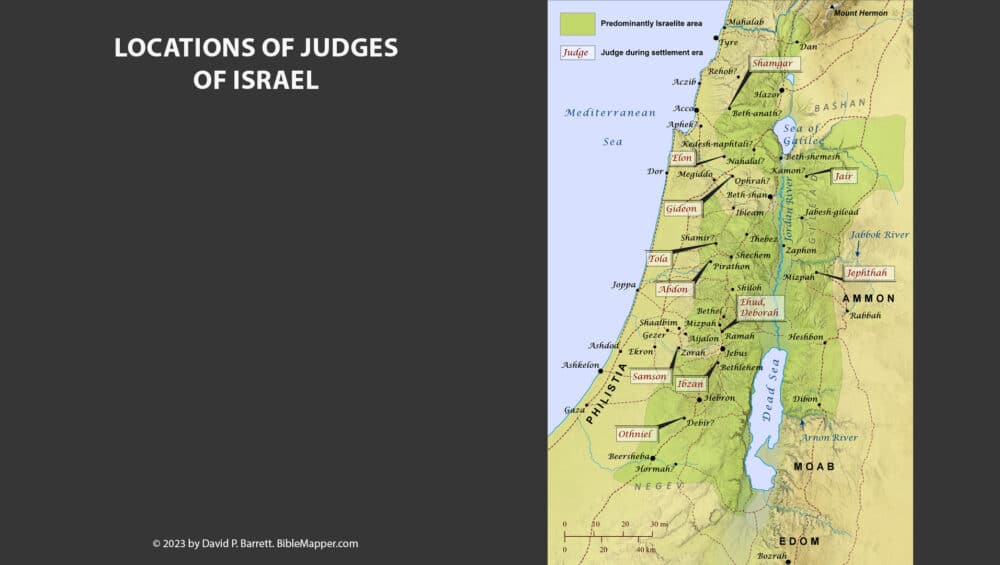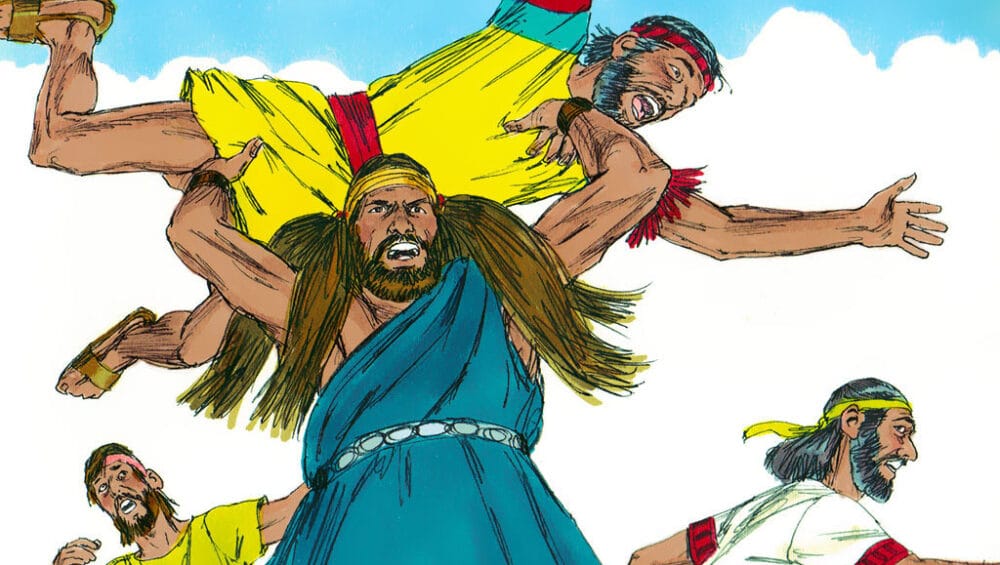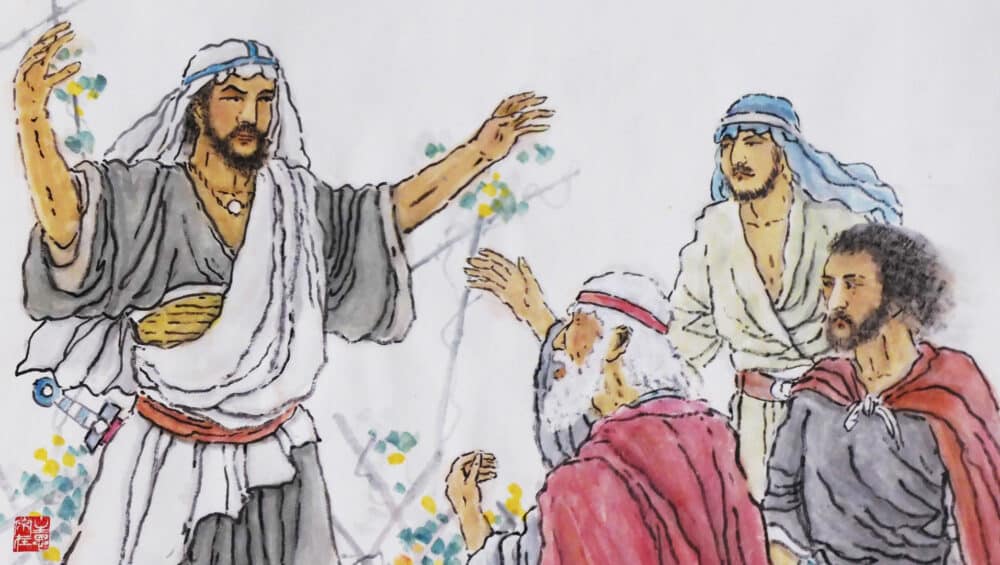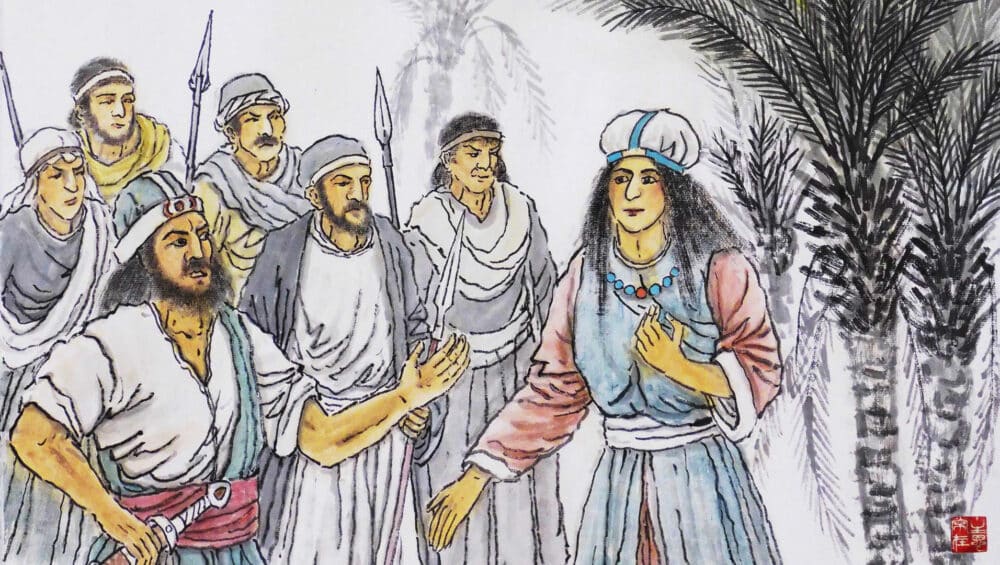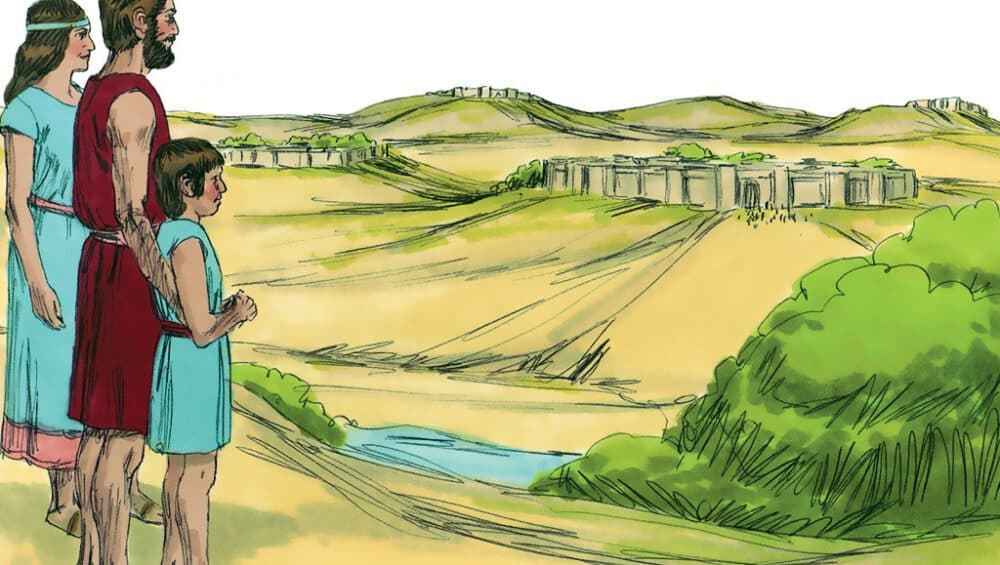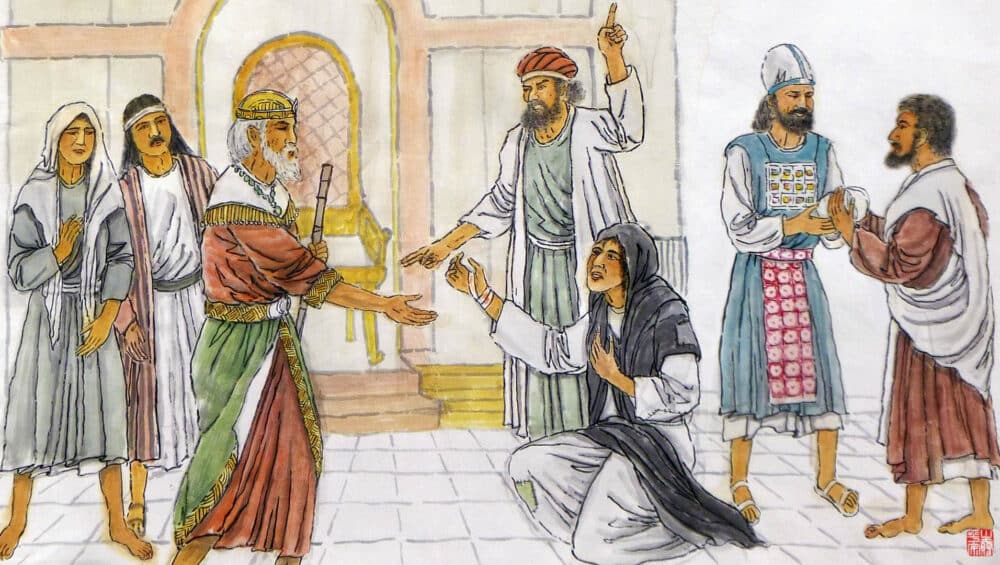David P. Barrett/Biblemapper.com
Welcome to Livin’ Light’s Bible-In-A-Year challenge of discovering God’s love for us and His purpose for our lives. Here is the format for this great adventure: The daily reading assignment is posted at 5 a.m. After each day’s reading, Leigh An Coplin, the blog host, shares observations and poses questions about difficult passages to Rob Fields, who studied Christian Education at Asbury Seminary and currently teaches Biology in the Orlando area. To start from the beginning, click on 365 Bible Readings and scroll down to Day 1. The reading schedule is taken from The One Year Chronological Bible NLT.
Today’s Reading
— Judges 19-21
(1375 BC) Click here for a timeline of the entire Bible.
Questions & Observations
Q. (Judges 19:1, 21:25): This story begins and ends with “Now in those days Israel had no king.” Is this just a historical marker?
A. It is. It is also a way of saying, “look how bad it was before Israel had a king. They did stuff like…”
Q. Wow, I thought I was understanding most everything until this reading. There are always surprises. In this story, my heart goes out to the Levite’s concubine. First, why don’t we know the Levite’s name and his concubine’s name? Second, the tribe of Benjamin is being justly punished for these evildoers. But, giving his wife up to men who wanted to have sex with him seems heinous, to say the least. Why would he do this? And, are the Levites still supposed to be working with the priests? And, the man who he stayed with was going to give his virgin daughter to the evil men. I don’t understand how women were viewed. Here we see that the wimpy men were giving up a wife and daughter so they wouldn’t be hurt. Then, at the end of the story, there were other men who were told not to be upset about their daughters being nabbed by the remaining men of Benjamin. So, one man is willing to give up his daughter to rapists, while the others have a hard time letting their daughters go. Admittedly, I am reading this from today’s perspective where, in the U.S. anyway, women have nearly equal status with men, or at least growing. We learn from this text that concubines can be bought. It’s mind-boggling.
A. There is nothing commendable about this story, which is a big part of what the author wants you to know: there are no winners here — not the Levite, not the Benjaminites, etc. I don’t really know why the people are not named, but I would imagine it was not information they really wanted to remember, especially among the tribe of Benjamin, which of course the story tells us barely survived this incident. The story just reinforces all of the problems of this era: ignoring God’s law about care and respect for women — not giving them over to rape (!) or letting them be murdered — not defending the actions of those who do such things as the tribe of Benjamin does, etc. The story is meant to shock us, and show us how evil this era was.
Q. On the other side of the story, we have the Levite. He is obviously upset that his concubine was treated this way, but what was he to expect when he gave her to the crazed men? And, what a horrendous act to cut her body into 12 pieces. To me, this act shows that she was thought of more as property than a person. And, when the Levite saw her lying in front of the house, knowing what she had probably been through, he said, “Get up! Let’s Go!”? That’s nuts! Rob, the way it reads, the fault of this act seems to be with the crazed men of Benjamin. Why isn’t the Levite responsible for any of this?
A. There certainly is no defense of his actions. I think he was responsible for some of the actions that take place, and his sacrificing his concubine to save his own skin is surely a despicable act.
Q. And, we can’t forget about the concubine’s father. Did he keep asking them to stay knowing that the travel is dangerous. He did comment on it being late. After dark is when more bad things can happen, so was he trying to save his daughter?
A. It does appear so.
Q. We do see how the leaders are distressed about having a tribe die out. I guess this is a message that immoral acts will not be tolerated in Israel and a wake-up call that they all need to improve their morals. It is nice to see them unite and scramble to find Benjamin’s men some wives. Again, though, it doesn’t seem like the women have much say in anything, just, “here’s your husband.”
A. They do indeed seem concerned, but again, even their solution is not that such a wholesome one for the women involved. It is probably best if we just keep moving along and put this horrific story behind us.
For further study: A positive takeaway from this gruesome story, https://www.ligonier.org/learn/devotionals/war-with-benjamin
Shop: Let’s end this day with some good thoughts! https://livinlight.org/product/all-good-thoughts/
Tomorrow’s reading: Ruth 1-4:12

